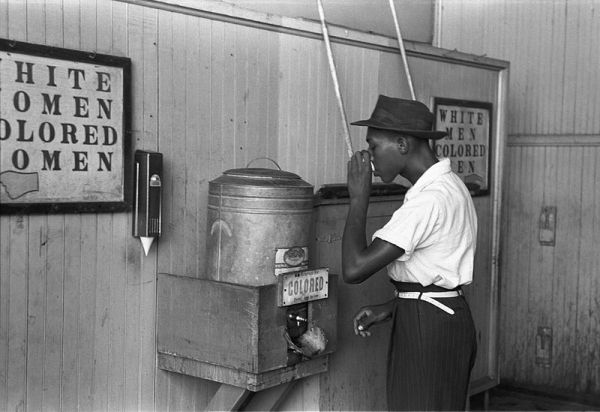The racism of the Jim Crow South and Nazi Germany are compared and analyzed at seminar co-led by USC Shoah Foundation’s Wolf Gruner
In the segregated American South, racist laws banning blacks from public places such as libraries and swimming pools were instituted at the local level.
In Germany, laws placing similar prohibitions on Jews were also – initially – a matter of municipal control.
But whereas the U.S. federal government reversed the local segregation laws with the Civil Rights Act of 1964, the Nazi-run centralized government in Germany universalized its local laws with the adoption of several decrees after the Nuremberg Laws in 1935.
Exploring such comparisons between Nazi Germany and the Jim Crow South is the focus of an ongoing two-week seminar at United States Holocaust Memorial Museum in Washington, D.C. that began today.
Co-led by USC Shoah Foundation’s Wolf Gruner – as well as a professor from Harvard and a professor emeritus from the University of California – the event is for university faculty from across the nation who teach Holocaust studies or U.S. Civil Rights history.
The aim, Gruner said, is to introduce concepts that enable instructors to make meaningful comparisons, as well as to expand awareness among U.S. university students of Holocaust history.
The 2018 Curt C. and Else Silberman Seminar for Faculty, which runs through June 15, will pay special attention to how these practices sharply diverged as Nazi antisemitic policies turned into widespread, state sanctioned murder and genocide in the 1940s.
Called “Racial Practice: Theory, Policy, and Execution in Nazi Germany and the Jim Crow South” the seminar will introduce the audience to the many ways in which the two experiences were products of a global movement based on pseudo-science that legitimized racism and violence in the name of eugenics.
The event will include lectures on racism and antisemitism in the early 20th century, race laws in Nazi Germany, spaces of segregation, perpetrators in Nazi Germany, and lynching as a spectacle.
In his lectures, Gruner – a professor of German-Jewish history at the USC and Institute’s founding director of the Center for Advanced Genocide Research – will share the results of his research, much of which defies conventional wisdom about anti-Jewish laws of Germany in the 1930s.
“People think (anti-Jewish laws are) all coming from Berlin from Hitler, and local governments just implement it,” Gruner said. “It’s quite the opposite, really. The government of Germany eventually picked up ideas from the bottom.”

Occasionally – before 1935 – the anti-Jewish strictures of local governments were even blocked by Berlin.
“They were too far ahead,” Gruner said. “Foreign correspondents would pick up on the incidents and write articles in newspapers. And in Berlin they would kind of be asked by the diplomats in Germany, ‘What are you doing there?’”
Leading the seminar with Gruner is Evelynn Hammonds, an African American studies and history professor at Harvard University; and Clarence Walker, a professor emeritus of American History at the University of California, Davis.
This is the second time Gruner has been asked to co-lead the seminar at the United States Holocaust Memorial Museum. Several years ago, Gruner – who published a book in 2015 about the discrimination against the the indigenous population in Bolivia – spoke at a seminar geared toward Hispanic serving higher education institutions.
Gruner has authored 12 books. His latest, “Anti-Jewish Persecution in the Protectorate Bohemia and Moravia - Local Initiatives, Central Decisions, Jewish Responses,” has won three distinguished prizes.